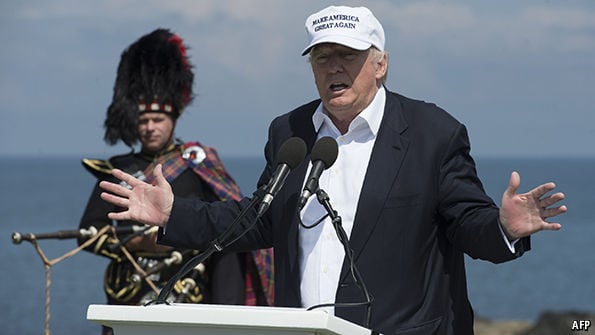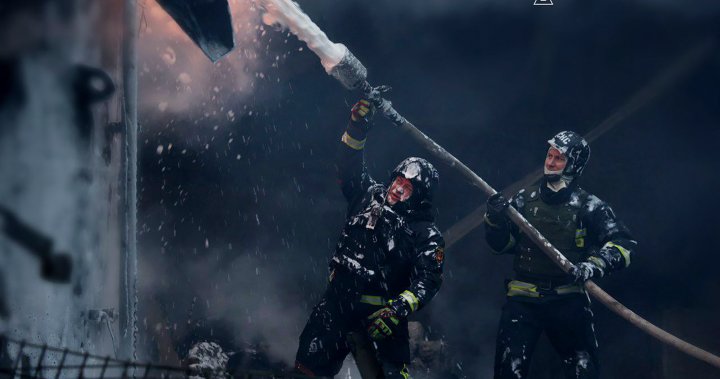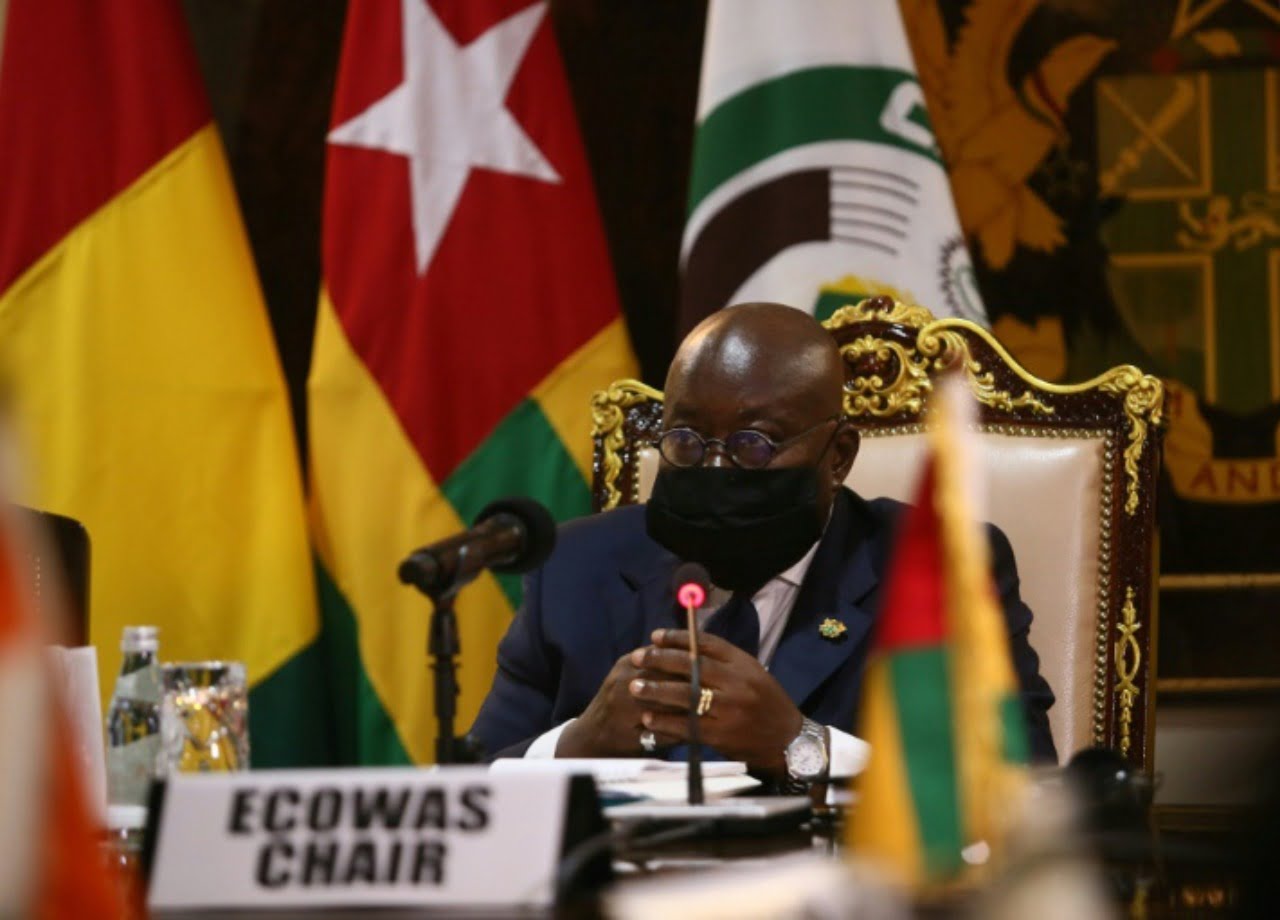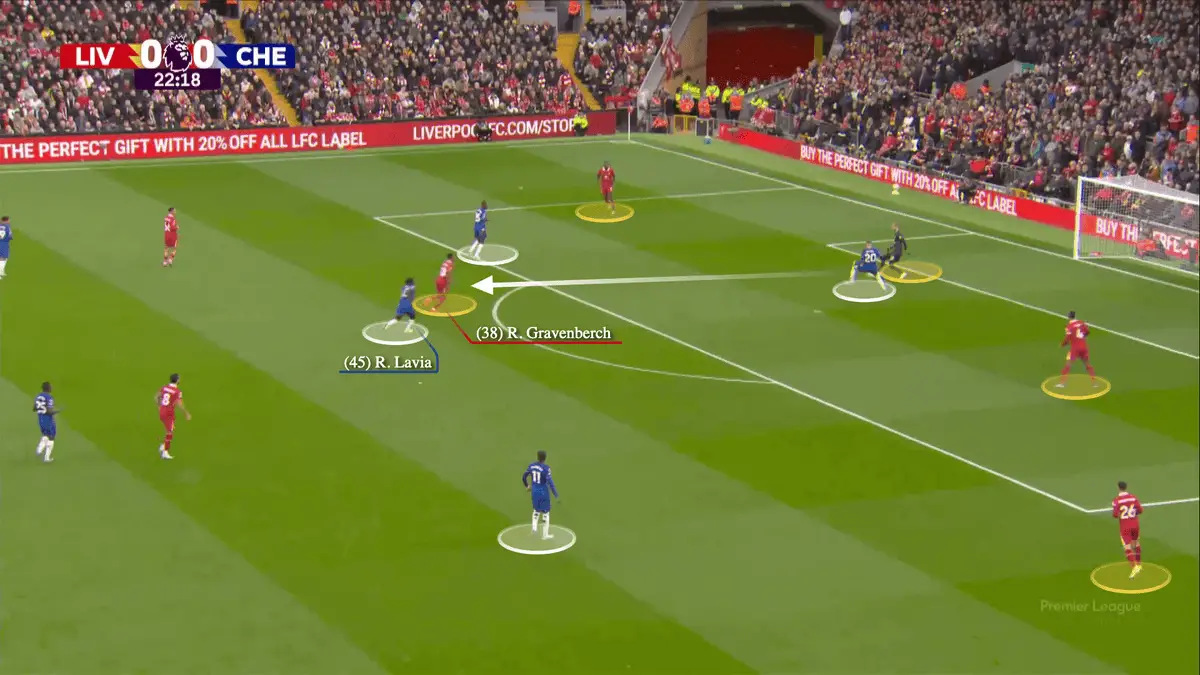
By BAGEHOT
THE urgency with which Britain’s Brexiteer elite has scrambled to cosy up to Donald Trump in the weeks building up to today’s inauguration has been something to behold. Leading the way was Nigel Farage, the former UKIP leader, flashing a mile-wide grin as he posed for souvenir snaps with the president-elect. Last week Michael Gove made the same pilgrimage. The former justice secretary, now writing for the Times, could barely conceal how impressed he was by America’s macho new helmsman: beaming for a goofy, thumbs-up photo and writing up the encounter in excruciating terms: “Mr Trump’s conversation flows like a river in spate, overwhelming interruptions and objections, reflecting the force of nature that is the man.”
The reflex goes all the way to the top: Theresa May greeting the November election result without the reserved language of, say, Angela Merkel. On January 15th her government infuriated other EU members by boycotting the Middle East peace conference in Paris to curry Mr Trump’s favour. In her big Brexit speech on Tuesday the prime minister hailed the president-elect’s talk of a prompt trade deal as an early triumph for her “Global Britain” agenda. After a week in which the tone of British-European relations has greatly soured, Mr Trump’s enthusiasm for Brexit and hostility to the EU is touted as a great boost for Britain in its coming exit talks. Perhaps, it is suggested, America’s new president will open the door to a new golden age of Anglo-Saxon friendship.
These instincts are understandable. The leader of the world’s only superpower cannot just be ignored or spurned, whatever his politics. Britain’s close cultural, defence and security ties with the United States mean London can play a special role in binding the voluble and suggestible new inhabitant of the White House into the rules-based global order. It can steer him towards sensible positions on subjects like NATO and Russia. Perhaps, to invoke the old dictum, it can be Greece to his Rome.
The thing is, Britain’s leaders risk going beyond engagement and realpolitik to something more craven, something closer to knee-jerk sycophancy. They risk overestimating the advantages and underestimating the risks of proximity to him.
Mr Trump’s priorities are not complicated. Brexiteers should expect his talk of admiring Brexit and revering the Queen to melt on first contact with the realities: Britain is not America’s most important trade partner and for four of the past five years has sold more to America than it has bought from it; including lots of stuff that could theoretically be made within America’s borders by American workers. So far Mr Trump has concentrated his protectionist rabble-rousing on Germany (which he thinks should buy more American cars) and most of all China. Even if Britain has been spared the verbal barbs, its surplus relationship with the United States puts it in a similar practical position as those countries. An early sign of the disparity between Mr Trump’s words and priorities came during his chat with Mr Gove. His interviewer presented an unambiguous invitation to pronounce Britain “front of the queue” for a trade deal. The president-elect flanneled: “I think you’re doing great”. It was later reported that he wants his trade negotiators to focus on NAFTA. When he says “America First”, he means it.
There is a broader point here. Mr Trump’s world is one of muscular conflicts of interest; brute, zero-sum tests of leverage, self-confidence and guile. Sycophancy and flattery may buy one a place in his court but the evidence suggests it comes at the cost of real influence. If he is solicitous towards Vladimir Putin it is not because the Russian president sucks up to him (in fact his public pronouncements have been cooly non-committal) but because he is a strongman who seems to get his way. Mr Trump admires that. If he is angry about China, he also commends its leaders’ canny policies. In other words, he respects those who stand up for their interests. This is the main message of “The Art of the Deal”: “The worst thing you can possibly do in a deal is seem desperate to make it. That makes the other guy smell blood, and then you’re dead”; “You have to believe in yourself or no one else will”; “When somebody challenges you, fight back. Be brutal, be tough.” All of which begs the question: could the new president’s early encounters with Britain’s fawning establishment turn out to have made him a less, not more, accommodating partner in the long term? Why ever cede ground to a government that instinctively gives it up for free?
While the potential advantages of clinging to Mr Trump may be smaller than they first appear, the possible disadvantages are probably greater. Unchallenged, he seems minded to threaten many of the hardest-won achievements of recent British foreign policy: welcoming the disintegration of the EU (Steve Bannon, his adviser, reportedly wants to build closer links with continental parties promoting that), weakening NATO, applauding Mr Putin’s adventurism, ripping up climate-change accords and the nuclear deal with Iran. Britain has shed blood and treasure in pursuit of these goals. Its exports to the rest of the EU are worth £171bn, compared with the £45bn value of those to America. To cheer on or turn a blind eye to such vandalism in the spirit of continental one-upmanship would be utterly short-sighted, doing diplomatic and economic damage that would far outlast the four- or eight-year span of Mr Trump’s presidency. Let Britain not become Europe’s answer to Chris Christie.
This is not to say Mrs May should seek conflict with Mr Trump. Far from it. The prime minister was right to send two chiefs of staff to New York last month to meet the transition team. She is also right to visit Washington, D.C. early in his presidency (the dates will be made public soon after today’s inauguration). But she should do so while clarifying and sticking to certain red lines; principles by which she intends to conduct the partnership and ensure it serves Britain’s interests. Mrs Merkel’s response to the election result—looking forward to cooperation “on the basis” of “common values”—points to the conditional sort of friendship London should seek. If we know one thing about America’s colourful new president, it is that he does not do long-term alliances or sentimental friendships. He does case-by-case deals. This transactional world, his world, will now circumscribe the transatlantic relationship. And in this world it is better to be respected than liked.







